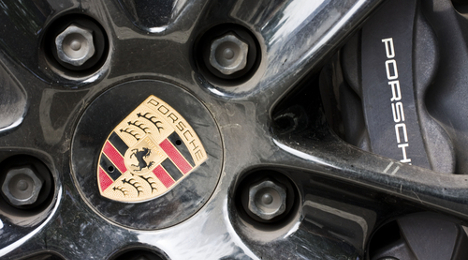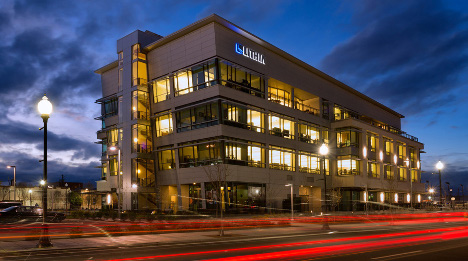On Wednesday morning, AutoNation announced that the dealer group has signed an agreement to acquire 12 stores, including 31 franchises, in six Texas markets from Allen Samuels Auto Group.
Officials indicated the dozen stores located in the markets of Houston, Dallas-Fort Worth, Corpus Christi, Tyler, Ennis and Waco represent approximately $800 million in annual revenue and 19,500 retail new- and used-vehicle unit sales.
For AutoNation, officials calculated Texas will represent approximately 25 percent of total revenue, with 53 stores, 82 franchises and 5,300 associates, once the acquisition is completed.
The franchises to be acquired include Chrysler, Dodge, Jeep, Ram, Chevrolet, Hyundai, Mercedes-Benz and Sprinter.
AutoNation said this transaction is subject to customary terms and conditions, including manufacturer approval, and is expected to close in the first quarter of 2016.
“We are pleased to have the opportunity to add 12 stores throughout the state of Texas,” AutoNation chairman, chief executive officer and president Mike Jackson.
“This acquisition will enhance our brand mix in the state of Texas,” Jackson continued. “We also look forward to welcoming Allen Samuels' customers and 1,000 associates to the AutoNation family.”
In September, AutoNation completed the previously announced acquisition of a Mercedes-Benz store, an Audi store, and a Subaru and Volkswagen store from Valley Motors Auto Group in the Baltimore market. The previously announced acquisition of 13 stores from Carl Gregory Enterprises is expected to close in the fourth quarter.
Since the beginning of the year, AutoNation has announced acquisitions with approximately $1.7 billion in annual revenue. Once the Allen Samuels and Carl Gregory acquisitions are completed, AutoNation's total store count will be 265 and total franchise count will be 372.
Stephens is serving as financial adviser to Allen Samuels Auto Group.
Editor's note: Details about AutoNation's third-quarter performance and more are set to be included in future installments of Auto Remarketing Today.
During an interview at last month’s NAAA Convention, Shane O’Dell outlined the process a buying dealer traditionally goes through to turn a wholesale purchase into a retail-ready car.
After making the purchase, the dealer has to pick the car up or have it transported to his or her store. Then, it’s time for an inspection of the vehicle. After the inspection, the dealer has to take care of whatever needs fixing, be it body work, mechanical, interiors and so forth.
Still then, the dealer must merchandise the car and take care of any finishing touches like making sure it has two keys.
All of that certainly is a process, one that can certainly take time and the dealer’s attention away from other meaningful tasks — like, for instance, taking care of recall work that would come through the body shop.
With that in mind, now Manheim is offering to, essentially, perform that retail-readying for dealers through a Retail Solutions offering it is piloting.
“All those things being done are done various ways at a dealer. A franchised dealer probably does most of that work themselves. An independent dealer might have to farm out a lot of that work. A major dealer is probably similar to a franchised dealer. Maybe they have a facility (or) they don’t have a facility,” said O’Dell, Manheim senior vice president of vehicle solutions. “So what we learned here in the last eight to nine months is, we have these facilities, the asset – the car – is sitting at those facilities, what if we started providing those services to complement our customer?”
That’s exactly what Manheim has been doing in Denver and Chicago through respective partnerships with Sonic Automotive and DriveTime.
The crux of it is, Manheim will handle those necessary steps from retail inspection and retail reconditioning to merchandising and transport to the dealer’s lot via Ready Auto Transport.
“You’ve bought the car. We did all the work. We dropped the car off at the front line. Now, all you have to focus on is the customer experience and retailing that car,” O’Dell said.
The whole process centers on making it simpler for the dealer and performing quality work fast. Dealers have less on their plates and can focus on the customer service. But it goes beyond that, O’Dell said.
For instance, it can allow franchised dealers to use their body shop for more consumer work instead of just getting its own cars ready for sale.
Partnerships with Sonic, DriveTime
The Retail Solutions work between Manheim Denver and Sonic’s Colorado-based EchoPark Automotive used-car standalone platform has been going on a while, O’Dell says, but efforts began to crank up in earnest during the first quarter of this year.
Meanwhile, Manheim Chicago and DriveTime partnership officially began Aug. 1
For both partnership, the emphasis has been on collaboration, learning from the dealers’ own processes and fine-tuning where the work can go from here. Both partnerships are aiming for expansion.
“Chicago was a good starting ground for us, because we opened that up on Aug. 1 to other customers to start offering these solutions to those customers, so we’ve actually been onboarding six or seven new customers over the last couple of months,” O’Dell said.
“And we’re still in a pilot phase, if you will. And when I refer to pilot phase, I’m talking about not just our learning of the process, but the actual adoption of these services. Because keep in mind, these services have been done by dealers for a long period of time,” he continued. “But what they’re starting to recognize is that because that car has been located there, if we can get everything done in one-stop-shop at that location and get it to their front line, that might be much easier than what they’ve had to do in the past with getting a unit to the front line.
“And I think when they see that, and we’re able to meet those expectations, that’s really when the game changes from the standpoint of a customer really buying into it and it making a difference from a profitability and speed standpoint.”
Lithia’s leadership has been long touting a goal to average 75 used-vehicle sales per store per month. At the end of the first quarter this year, the group was sitting at roughly 57 units per store.
By the end of September, Lithia’s monthly average has seen a solid gain.
“On a 12-month rolling average, we sold 61 used vehicles per store, up from 55 units in the comparable period last year,” said Bryan DeBoer, the company’s president and chief executive officer. “Our goal to retail 75 used units per store still provides considerable upside in the future.”
Aside from the company’s industrious acquisition strategy, DeBoer says the group is also focusing on strengthening internally.
“We continue to grow used-vehicle sales as inventory resupply increases in the marketplace,” DeBoer said. “Additionally our stores continue to recruit and develop used-vehicle managers with the ability to source, recondition and merchandize used inventories.”
According to the company, several used-vehicle metrics jumped in the third quarter. Here’s a brief breakdown of Q3 same-store results from DeBoer that weren’t specified in the company’s released results:
- Certified unit sales increased 19 percent
- “Core” unit (aged 3-5 years) sales increased 8 percent
- “Value Auto” unit (mileage over 80,000 miles, any age) sales increased 5 percent
With its used-vehicle sales leading the way in revenue stream increases in Q3, DeBoer also mentioned that the company’s used-to-new sales ratio was brought up to 0.83:1.
So how will the seasonal trend of increased supply affect Lithia’s pricing scheme?
“If we look at residual values and we look at what we believe will be future trends, what we're starting to see initially is that there’s starting to be increase supplies in used vehicles,” DeBoer said. “So off-leased vehicles are becoming more prevalent, which would give indication that values may soften a little bit as supply begins to loosen. And I think those trends may continue as the SAAR rates continue to climb as well.”
Sidney DeBoer, the company’s founder and executive chairman, agreed on the pricing situation and clarified his outlook.
“This is kind of a stable position that we’re in now,” he said. “There are no extremes.”
Speaking of lease returns and the large contingency of them anticipated to hit the market, an analyst asked if that would affect the number of used inventory units that Lithia will hold on to.
“Personally, I don’t think so,” Bryan DeBoer said. “I think that helps you grow your business but I don’t think you’re going to reduce your overall inventories because of that because we’re still trying to grow core and valued autos, as well. And remember, core is over half of our business. So even as those off-lease cars grow, I really believe no, it’s not going to affect the inventories.”
DCH integrating well
Lithia’s purchase of one of the largest dealer groups in the country, DCH Auto Group, closed a little over a year ago, representing one of the largest dealership acquisitions in recent history. Using a baseball metaphor this week, DeBoer says it may very well be one of the most painless purchases Lithia has ever made.
“In terms of what inning we’re in, in terms of integration, I would say that we’re in the middle innings. I believe they know who they are and what they want to become,” DeBoer said. “They have a wonderful culture. They are humbly confident, much like we had talked about.
“And I can say this: I think it was the smoothest integration that we may have ever had on an acquisition, including the small ones that were $30 million. This, at $2.4 billion, was really pleasing to see that our two organizations, who if you recall knew each other historically but never were really together at this level, we’re proud to have them as our teammates and companions.”
Want to read more on Lithia’s ongoing acquisition strategy? Check out our story here.
Twenty-six hundred stores. As Auto Remarketing reported earlier this year, that is the number of dealerships nationwide that Lithia Motors' president and chief executive officer Bryan DeBoer maintains his company has on his radar as potential acquisitions.
With three third-quarter acquisitions under its belt, one of which includes the only Acura store in Honolulu, DeBoer said the fourth quarter is starting strong – with yet another purchase.
“The fourth quarter is off to a good start with the acquisition of Concord Chrysler Jeep Dodge Ram and Fiat in California,” DeBoer said in the retailer's recent quarterly earnings call. “Thus far in 2015, we have purchased or opened six locations with estimated annual revenues of approximately $220 million.”
Playing into the role of the group’s acquisitions are its earnings milestones. Following a milestone set by the company earlier this year of $7 per share, which the company anticipates exceeding early next year, Lithia’s management team went ahead and raised the bar a bit higher — to $8. What’s needed to reach it? More stores, more sales.
“To get to the milestone eight, we need about a billion dollars in additional acquisitions in revenue,” DeBoer said. “That’s something that we’re going to be looking at. I believe that could come before a recession would ever possibly hit.”
DeBoer mentioned that his company spends about half of its time looking at acquisitions to support its DCH strategy, focused on metropolitan areas.
The CEO says Lithia has looked at roughly 30 deals in the Tri-State area surrounding New York City and in Southern California. He said the retailer is pretty close sealing the deal on a few sizeable deals, which he said are larger in size compared to Lithia’s average-size acquisition.
He said the retailer is pretty close sealing the deal on a few sizeable purchases, which he said are larger in size compared to the average acquisition that Lithia makes.
When asked if Lithia was focused on larger buys, picking up smaller stores, or some mix in-between, DeBoer appeared open to any possibility.
“I think what we’re seeing is that there is a ton of opportunities, so we’re able to be selective on not only large groups but on our individual groups,” he said. “So far this year, we’ve done six acquisitions or open points. We really believe that the pipeline is full and that was maybe a little bit slower than what we would expect in the future.
“And I think it’s because there is such a vast array of selection. When we look at whether or not there are going to be a stable diet of one or two type of stores, I think we will have a balance of those.”
Chris Holzshu, Lithia’s senior vice president and chief financial officer, focused on making sure the company is prepared to make acquisitions when the timing is right.
“Looking forward, as we keep talking about acquisitions and being in the next phase of our growth plan, I think it’s important for us to make sure that we have a balance sheet that can acquire a significant number of stores if they come to market,” Holzshu said. “Before DCH, our leverage ratio was about 1.3 times.
“So, we’ve still probably got another year to get down there assuming that we don’t do a lot of acquisitions. But I think we feel that the acquisition pipeline is full right now and our leverage ratio will probably at least stay where it’s at or climb a little bit through next year.”
Maintaining a forward-looking approach, DeBoer commented on how even negative economic climates can present opportunities for Lithia to capitalize to continue its growth plans.
“I still think the biggest driver of acquisitions is that we went through a decade, or a half of a generation, of depressed values because of the recession,” DeBoer said. “I think that’s what’s really driving it. I think if there is some type of gloom, to some extent, like what happened a few months ago with the stock market, like what may happen again, that those type of events can be elixirs to creating more acquisitions.
“Right now there is just so many out there that the ability to be selective has been really good from our standpoint. And I think that has a pretty good runway for the next five to 10 years that we’ll continue to see that.”
There was a phrase to describe the status of Q auto — used by an investment analyst during Wednesday’s quarterly earnings call — that Asbury Automotive Group chief executive Craig Monaghan seemed to like.
In the Q&A portion of the call, Rick Nelson of Stephens Inc. asked whether Asbury’s plan was to “nurture these three stores” already in the standalone used-car program’s lineup or at some point, make a decision to “push forward with unit growth?”
“Rick, that word ‘nurture’ … it’s a great term,” Monaghan said. “I would tell you that we’re very much committed to Q. We are still learning. We are experimenting with different things.”
One such idea would be to have a “sub-brand” for the Q auto name tied into Asbury’s various individual regional brands (Coggin, Crown Automotive, Greenville Automotive, etc.).
Getting back to Q auto’s performance, though, the program “continues to progress, in line with our expectations, and resulted in an EPS loss of 1 cent in the third quarter,” Asbury chief financial officer Keith Style said during the prepared portion of the call.
“We continue to focus on our objective of achieving run-rate profitability for Q,” he added.
And as far as that loss goes, Monaghan said in the Q&A: “We think relative to the opportunity that we see there, that’s a small price to pay for what we still believe has very serious upside potential. And we’ll be sticking with it.”
Another analyst asked when “a more substantial change” in the group’s Q auto strategy might happen, inquiring whether Asbury is likely to focus on its existing Q stores for the next six to 12 months and go forward from there, or whether it may shift to opening additional outlets in the next six months.
It’s “hard for us to say” what the timetable might be, Monaghan said.
The retailer is “learning every month” from its work with the Q auto program — whose stores are located in the Florida cities of Brandon, Fort Myers and Jacksonville — and the group is quite committed to it.
“We think we’d be remiss not to continue to work with it. But we’re going to learn as we go,” Monaghan said. “For some of the stores in Florida, now all the snowbirds are coming back, we’ve got a broader customer base. I like Rick’s word: we’re going to continue to 'nurture' it.
“It is not consuming a tremendous amount of capital. We’ve got a great team that’s working on it. We like the progress that we see,” he added.
“We will give you a head’s up if we’re getting ready to open additional stores. We’ll let you know,” Monaghan added. “But at this point we want to just continue with these three while we continue to refine the model.”
Other notes on Q auto from Wednesday’s call:
— Monaghan on potential of Q customers coming back for parts and service:
“At this point, it’s not a material part of that business. One of the things that we have learned with Q is that when you come out of a box with a brand that never existed before, you’ve got a challenge.
“You just don’t have that much recognition, we just don’t’ have that many cars on the road that we sold, so we’ve got a very low unit in operation number. We see that business growing over time … but at this point in time, it’s a very small part of the business.”
— Another analyst asked about the impact of the “peer-to-peer online dealer model,” particularly as it picks up steam and increases transparency around price and gross profits. In terms of developing Q auto strategy, the analyst asked, is that a concern for Asbury?
“No.We also notice that there’s a lot of activity in the used market, a lot of new entrants. They’re small at this stage of the game,” Monaghan said. “But it’s clearly a market that many others are finding more and more intriguing.
“I would go back to one of our fundamental concepts: we send somewhere around 35,000 cars to auction every year. We believe that many of those vehicles end up on our competitors’ lots,” he said.
“And we would love to figure out a way to retain those vehicles in our systems and retail them ourselves to generate incremental profit. And we don’t think what anybody else is doing online or anywhere else really matters,” he continued.
“We think this is an opportunity that exists within our own system and we’re committed to figuring out how to make that work.”
Asbury Automotive Group sold more than 21,000 used cars last quarter and it has generated more than $1.3 billion in used retail revenues this year.
But what about its same-store results? Gross profits? Gross margins?
We’ve got a rundown below that gives a better glimpse of how the public retailer performed in the third quarter and how its year-to-date metrics stack up against last year’s.
Q3 Overall
Asbury pulled in $493 million of total used-vehicle revenue in the third quarter, up 8 percent year-over-year. Of that sum, $438.8 million was retail (up 10 percent) and $54.2 million was wholesale (down 6 percent).
Used retail gross profits were at $35.2 million (up 8 percent), with used wholesale gross at a negative $1.8 million, bringing overall used gross profits to $33.4 million (up 7 percent).
Average gross profit per unit for used vehicles was $1,652, down 1 percent year-over-year.
Used-vehicle retail gross margins were at 8 percent, down from 8.2 percent a year ago.
Asbury retailed 21,306 used vehicles, beating the Q3 2014 sum by 9 percent. The used-to-new ratio for the quarter was 75.1 percent, compared to 79.6 percent a year ago.
Q3 Same-Store
On a same-store basis, Asbury notched used retail revenue of $407 million (up 4 percent) and wholesale revenue of $50.8 million (down 9 percent), with total used revenue at $457.8 million (up 2 percent).
Used retail gross profits came in at $32.7 million (up 2 percent), with wholesale gross at negative $1.7 million, bringing the total used gross profits to $31 million (up 1 percent).
Average used-vehicle gross profit per unit hit $1,664, relatively unchanged from last year’s figure of $1,658.
Used retail gross margins were at 8 percent, down from 8.2 percent a year earlier.
Same-store used retail sales were at 19,649 (up 2 percent), results in a used-to-new ratio of 74.9 percent (against 79.4 percent in Q3 2014).
Year-to-Date Overall
So far this year, Asbury has reached $1.31 billion in retail used revenue (up 13 percent), $164.2 million in wholesale revenue (up 3 percent) and $1.47 billion in total used revenue (up 12 percent).
As for gross profits, they have tallied $102.4 million for overall used (up 4 percent), with used retail making up $105.6 million (up 6 percent) and wholesale contributing a $3.2 million deficit.
Average used-vehicle gross profit per unit is $1,672, down 4 percent year-over-year.
Used retail gross margins are down from 8.6 percent to 8.1 percent.
They have moved 63,164 retail used vehicles this year for an 11-percent gain, making the year-to-date used-to-new ratio 79.1 percent, versus 79.8 percent through three quarters of 2014.
Year-to-Date Same-Store
Lastly, here’s a run-down of Asbury’s same-store results through nine months.
Retail used revenues have increased 6 percent to $1.20 billion, wholesale revenues have dipped 3 percent to $151.4 million and total used revenues have moved up 5 percent to $1.36 billion.
As for gross profits, the $95.3 million total used vehicle tally (which is down 2 percent year-over-year) includes $98.1 million in retail gross profits and a negative of $2.8 million in wholesale gross profits.
Average gross profit per unit for used vehicles was down 3 percent at $1,692, with used vehicle retail gross margins down from 8.6 percent to 8.1 percent.
Through Q3, the dealership group has sold 57,977 used retail units on a same-store basis, up 3 percent from the same period of last year. This has resulted in a used-to-new ratio of 78.0 percent, versus 79.7 percent last year.
Lithia reported its best-ever third-quarter earnings in company history this week. Leading the way? Used-vehicle sales.
Looking at its third-quarter operating highlights, Lithia’s used-vehicle retail sales on a same-store level increased by 13 percent compared to Q3 2014, representing the biggest jump of the four different metrics that experienced double-digit growth quarter-over-quarter.
Lithia’s president and chief executive officer, Brian DeBoer, explained.
"Our third quarter earnings were the highest in company history," DeBoer said in Lithia's earnings release. "Same-store sales in all four business lines grew by double digits, led by a 13 percent increase in used-vehicle sales. Total revenues increased 61 percent and adjusted earnings per share increased 54 percent over the prior year period.
"A robust new-vehicle sales environment, improving supply of late-model used vehicles, and the continued growth in our service, body and parts business is allowing our store leaders to unlock new opportunities to improve performance across our company. We remain positive on the overall outlook for both organic and acquisition growth in 2016."
Take a glance at the used-vehicle results below — broken down and separated by overall and same-store results — to get an idea of the impact of Lithia’s newly acquired stores had on the group overall in the third quarter and the year so far.
Q3 Glance at Used-Vehicle Results
| Revenue (in thousands) |
2015 |
2014 |
% Change |
| Used-vehicle retail (consolidated) |
$505,885 |
$340,522 |
48.6 |
| Used-vehicle retail (same-store) |
$381,773 |
$338,400 |
12.8 |
| Unit Sales |
|
|
|
| Used-vehicle retail (consolidated) |
26,206 |
17,710 |
48 |
| Used-vehicle retail (same-store) |
19,255 |
17,566 |
9.6 |
| Average Gross Profit Per Unit |
|
|
|
| Used-vehicle retail (consolidated) |
$2,377 |
$2,479 |
(4.1) |
| Used-vehicle retail (same-store) |
$2,546 |
$2,489 |
2.3 |
YTD (Q1-Q3) Glance at Used-Vehicle Results
| Revenue (in thousands) |
2015 |
2014 |
% Change |
| Used-vehicle retail (consolidated) |
$1,457,617 |
$952,890 |
53 |
| Used-vehicle retail (same-store) |
$1,071,691 |
$943,360 |
13.6 |
| Unit Sales |
|
|
|
| Used-vehicle retail (consolidated) |
75,099 |
50,112 |
49.9 |
| Used-vehicle retail (same-store) |
54,197 |
49,537 |
9.4 |
| Average Gross Profit Per Unit |
|
|
|
| Used-vehicle retail (consolidated) |
$2,456 |
$2,569 |
(4.4) |
| Used-vehicle retail (same-store) |
$2,614 |
$2,579 |
1.4 |
DeBoer commented on the continued expansion of his group, adding during the conference call that the company is still open to acquisitions of all sizes as they come along.
"We have purchased or opened six stores in 2015 which will add cumulative annual revenues of approximately $220 million,” DeBoer said. “We are actively seeking stores in both our Lithia exclusive market strategy and in our DCH metropolitan market strategy. The acquisition market remains robust and we anticipate further transactions for both Lithia and DCH in the near term."
To check out Lithia's full third-quarter results, click here.
The Prime Motor Group announced Friday its extensive expansion plans in Westwood and Rockland, Mass., with groundbreaking ceremonies having taken place in early October to make way for four new dealerships in the Boston area.
Three of those four dealerships broke ground side by side on Oct. 1 in Westwood, making way for over 120,000 square feet of space situated on 12 acres of land along Route 1. Positioned adjacent to Prime’s Mercedes-Benz of Westwood, the three luxury dealerships will retail Audi, Acura and Porsche vehicles.
Each dealership will feature a full service café, lounge areas, indoor service drives, Wi-Fi accessibility and quiet areas for customers who’d like to work while they wait for their vehicle service to be completed. Combined, the dealerships will include 70 service bays along with a fleet of complimentary loaner vehicles.
The three dealerships will incorporate Prime’s existing Acura, Audi and Porsche staff and clients when it opens at an anticipated date of July 2016. The group plans to add approximately 25 jobs with the expansion, bringing the group’s total employee number to 180.
"We opened our original Audi and Porsche dealerships in Westwood and our Acura dealership in Walpole in 2007,” said David Rosenberg, the group’s president. “Over the past eight years we've grown and improved the operations significantly. Quite simply, we need more space to better serve our customers. The timing was right and the town of Westwood has been extraordinary to work with as we've developed our plans."
Matt McGovern, the group’s vice president, says that putting the four dealerships in such proximity will allow for a unique luxury shopping experience.
"By having Acura, Audi and Porsche immediately next door to our existing Mercedes-Benz dealership, customers in search of a luxury vehicle will have four outstanding brands to explore, all in easy walking distance of each other,” McGovern said. “We are creating one of the few settings in the country to offer customers the opportunity to test drive and compare multiple brands of luxury vehicles at one convenient destination."
Looking eastward to Rockland, Mass., Prime broke ground on Oct. 2 for its new Hyundai dealership, which will eventually feature 27,000 square of sales and service space. The group anticipates an opening date in May 2016 with roughly 50 people on staff.
"For the past two years we've been looking for an exceptional South Shore location for a new Hyundai dealership,” Rosenberg said. “We first opened Hyundai in Quincy in 2012 and while we loved being there, the footprint of the facility was extremely limited and couldn't be expanded upon. From the customer's perspective, we felt we needed to be more accessible, and Rockland delivers that beautifully as we'll be situated right off Route 3. We'll also have far more room both for customer parking and additional inventory to better serve the local communities."
For more information on the Prime Auto Group, visit its site here.
The chief executive of Morrie’s Automotive Group and a private holdings company are set to buy the dealership group.
Under the agreement, Morrie’s CEO Karl Schmidt and Fremont Private Holdings would acquire all of the dealership group’s stores, body shops and related real estate from founder and current owner Morrie Wagener.
Pending manufacturer approval, the ownership transfer should happen this quarter or early next year.
“Morrie’s does not anticipate any material changes to its management structure, staffing or dealership operations as a result of the transaction,” the dealership group said in its statement.
Wagener founded the company in 1960, and Schmidt has led its operations since 2009.
The group’s brands include Aston Martin, Bentley, Cadillac, Ford, Hyundai, Lincoln, Maserati, Mazda, Nissan and Subaru. It has stores in in Minnesota and Wisconsin.
"I built a business on the basics. Do what's right, hire good people and provide a better experience. Running a business is nothing more than satisfying people, those who work for Morrie's and those who shop Morrie's," said Wagener.
The company said that Morrie’s will be able to add stores and more staff, broaden brand offerings and “bring further innovation to the car-shopping experience to make it more transparent and more enjoyable,” thanks to the purchase.
"The Morrie's name will continue to be used, and Morrie's will continue to lead the way in customer experience. I'm excited for my family, excited for the customers and, most of all, excited to watch how Morrie's Automotive Group evolves the dealership concept," said Wagener.
Russ Darrow Group delivers the breakfast goods
Staying in the Upper Midwest, Wisconsin-based Russ Darrow Group announced on Oct. 12 it has teamed up with McDonald’s Southeastern Wisconsin for a contest involving, you guessed it, breakfast from the Golden Arches.
The regional McDonald’s group is hosting a “Breakfast for Lunch for Ten” promotion, and will be delivering the winners their food via Russ Darrow Group’s “All Day Breakfast Mobile.”
That car, by the way, is a specially wrapped Kia Soul.
Contestants enter the drawing by following @McDonaldsMKE on Twitter and tweeting, “Bring me breakfast!” They also have to include where they work.
McDonald’s will have a random drawing of the Twitter followers each Monday afternoon through Oct. 29. Those who are drawn will have breakfast items delivered to their workplaces by the Southeastern Wisconsin McDonald’s employees in the Russ Darrow “All Day Breakfast Mobile.”
Contestants can also register at the contest page of 103.7 KISS-FM.
Lithia Motors added two stores in the Western U.S. to its lineup this week.
The dealer group, one of the largest in the country, has purchased Crown Chrysler Jeep Dodge Ram Fiat in Concord Calif., and Bennett Motors, located in Great Fall, Mont.
The company expects the two new acquisitions to bring in an estimated $75 million in annual revenues.
The stores will be renamed Lithia Chrysler Jeep Dodge Ram Fiat of Concord and Lithia Subaru Hyundai GMC Buick of Great Falls, the company shared.
Bryan DeBoer, Lithia president and chief executive officer, said, "We are pleased to expand our presence in the Bay Area of California and in the state of Montana. Both locations are markets that have complementary Lithia operations and allow us to leverage scale in the community. We look forward to expanding our customer relationships as we increase our presence in the local communities we serve."
The company has been busy this year, as it added another store in Montana just this past August: Bitterroot Ford.
The store, located in Missoula, Mont., will be renamed Lithia Ford of Missoula. Lithia expects the store to add $50 million in annual revenues to the group’s portfolio.












